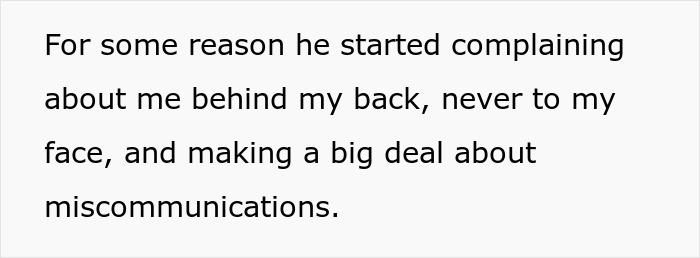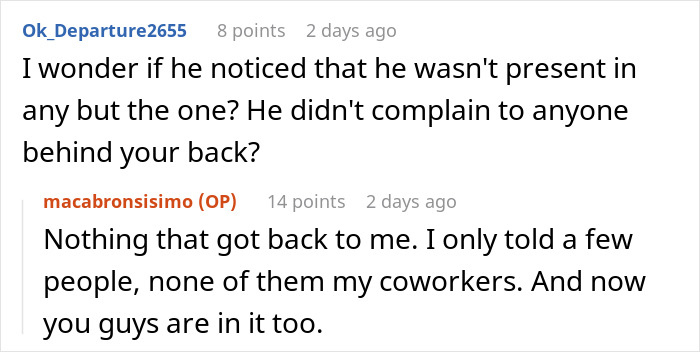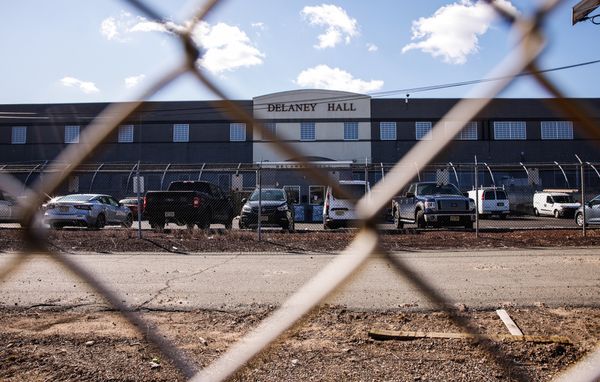When you get a new colleague, especially someone young and inexperienced, you don’t hold them to the same standards as seasoned professionals who’ve had years to refine their skills. Growth and development takes time.
However, after a fresh college graduate joined the summer camp where Reddit user Macabronsisimo was working, he wasn’t eager to learn. Instead, the guy started stirring up unnecessary drama. Specifically, he went above and beyond to damage Macabronsisimo’s reputation behind his back.
So, as the man explained on the subreddit ‘Petty Revenge,’ he had to teach the youngster a lesson not to mess with the old folks.
This man was working at a summer camp, and everything was going well until he got a new colleague

Image credits: RDNE Stock project / pexels (not the actual photo)
Who, for some reason, started desperately trying to sabotage his reputation



After the man learned about the new hire’s attempts to damage his image, he went after his

Image credits: Priscilla Du Preez 🇨🇦 / unsplash (not the actual photo)





Image credits: Matheus Bertelli / pexels (not the actual photo)


Image credits: macabronsisimo
Workplace gossip can quickly undermine the culture of the entire organization
According to Joseph Grenny, co-founder of Crucial Learning, a company that offers courses in communication, performance, and leadership, gossip at work comes in different forms but usually serves the following three purposes:
- It can be a source of information for those who mistrust formal channels;
- It can serve as an emotional release for anger or frustration;
- It can be used as an indirect way of surfacing or engaging in interpersonal conflicts.
Our story probably falls into the latter. And while talking behind someone’s back might be brushed off as innocent “blowing off steam” or a more strategic “confirming performance data”, it can quickly escalate and take a toll on the team’s trust, morale, and relationships.
“By talking to anyone, everyone, or even one person about another colleague who isn’t there to hear the feedback, provide his or her perspective, and engage in joint problem solving, you are undermining the benefits of an open, honest relationship and a feedback-rich culture,” says keynote speaker and consultant Deborah Grayson Riegel, who teaches leadership communication for Wharton Business School and Columbia Business School.
However, it’s quite natural to us. “At the end of the day, employees just want to be heard,” says Lisa Sanchez, SHRM-SCP, vice president of HR at the ArtCenter College of Design in Pasadena, California.
A study published via Office Pulse confirms this—nearly three-quarters of white-collar workers admit to gossiping about workplace issues or coworkers while at the office. The survey revealed that:
On average, American workers spend about 40 minutes per week gossiping;
- More than half (55%) of men and four in five (79%) women admit to gossiping (however, men prove to be the bigger blabber-mouths; they spend about one hour a week talking about the juicy stuff, compared to women who gossip just over 30 minutes a week);
- Millennials are more likely to gossip at work (81%) than Gen Xers (70%) and Baby Boomers (58%);
- Nearly one-third (30%) of professionals said that their boss has specifically asked them for gossip to learn about workplace issues;
- More than a quarter (29%) said that office gossip is their “main source of information” about workplace news (that statement was particularly true for Millennials (41%)).
But Sanchez also claims that in her nearly three decades in HR, she hasn’t disciplined or terminated someone for gossiping, so at least people get the message when they’re confronted about it. Maybe the young guy from the story did too.
As the story went viral, its author shared a few more fun little details in the comments



















